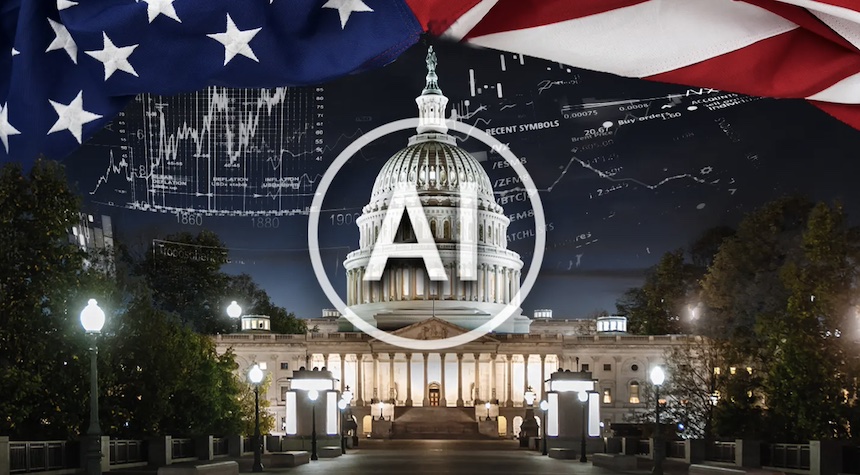On Wednesday, a bipartisan grouping of U.S. Senators called for increased funding for artificial intelligence research.
The group led by Senate Minority Leader Chuck Schumer (D-N.Y.) argues that the U.S. risks being left behind in AI if funding from the government does not increase. Mike Rounds (R-S.D.) and Todd Young (R-Ind.) joined Schumer on the other side.
Rounds stated in a press release that the dollars invested in this investment would pay dividends for the taxpayers in this country over the long term. “China spends about 10 times as much on AI research and development as we do.” “They are in a rush.”
The group’s plan centers on generative AI which can produce text, photos, and videos as a response to open-ended questions. This technology has generated a lot of excitement, but also some concern as it could make more jobs redundant.
The group wants the U.S. government to spend $32 billion annually on AI research that is not related to defense.

Schumer said Congress also plans to spend “a large number” of dollars on AI-related defense issues. He argued that it was critical to “outcompete China.”
He added that it is not necessary to have a comprehensive AI bill that covers all issues. He said that individual committees could work on AI and then present legislation when they are ready.
He said: “We won’t wait for legislation that covers every aspect of AI within society.”
The Senate Rules Committee will be debating AI and its potential impact on the U.S. electoral system on Wednesday.

The announcement came during the first AI meeting between top U.S. officials and Chinese officials in Geneva on Tuesday.
The talks that Biden and Xi Jinping have agreed to start in 2023 are intended to begin a bilateral dialogue between two of the largest economies and geopolitical competitors on a rapidly evolving technology which has already had consequences for trade and lifestyles, culture and politics, as well as national security and defense.
U.S. technology experts say the meeting — led on the American side by high-level White House and State Department officials — could offer a glimpse into Beijing’s thinking about AI amid a generally tight-lipped Chinese approach to the technology.

